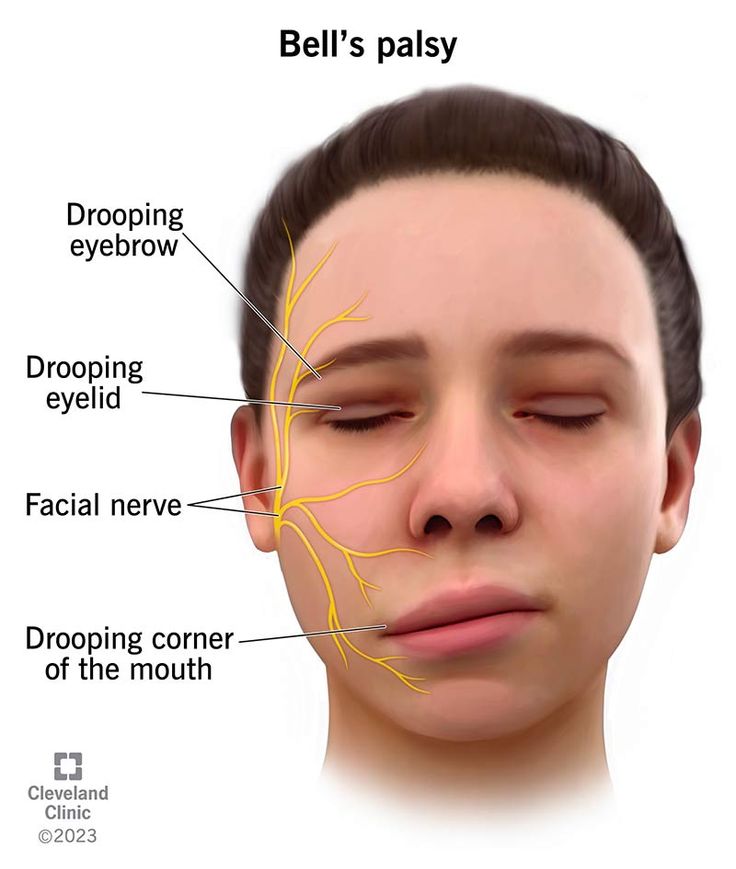
Facial Palsy, often referred to as Bell’s Palsy in modern medicine, is known as Ardita Vata in Ayurveda. It’s primarily a Vata Dosha disorder, specifically affecting the facial (7th cranial) nerve. The sudden weakness or paralysis of facial muscles is attributed to the vitiation of Vata, which disrupts the normal nerve impulses and muscle function in the face. Other factors like cold exposure, physical or mental exertion, trauma, or even suppressed emotions can aggravate Vata.
Ayurvedic treatment for Facial Palsy is highly focused on pacifying Vata, nourishing the affected nerves and muscles, and improving circulation and nerve conduction. It’s a holistic approach that often involves a combination of therapies, internal medications, and lifestyle adjustments.
Here’s a detailed overview of Ayurvedic treatment approaches for Facial Palsy:
I. Shodhana (Panchakarma – Detoxification and Purification Therapies): Panchakarma therapies are crucial for Facial Palsy, especially in the sub-acute and chronic phases, to rejuvenate the nervous system and restore function. The choice and intensity of therapies are personalized.
- Nasya (Nasal Administration of Medicated Substances):
- Description: This is considered the most important treatment for Ardita Vata. Warm medicated oils like Anu Taila, Ksheerabala Taila (101 Avarthi), Mahamasha Taila, or even cow’s ghee (Go Ghrita) are instilled into the nostrils.
- Benefits: The nasal passages are considered a gateway to the brain and head. Nasya directly nourishes the facial nerves, improves circulation to the facial muscles, reduces Vata aggravation, and helps in the regeneration of nerve tissue. It aids in restoring muscle movement and sensation.
- Abhyanga (Therapeutic Oil Massage):
- Description: Gentle massage of the affected side of the face and neck with warm, Vata-pacifying medicated oils.
- Oils Used: Ksheerabala Taila, Mahamasha Taila, Dhanwantaram Taila, Karpasasthyadi Taila, Mahanarayana Taila.
- Benefits: Improves local blood circulation, nourishes the facial muscles and nerves, reduces stiffness, and helps to regain muscle tone. It also calms Vata and reduces pain if present.
- Swedana (Fomentation/Steam Therapy):
- Description: Localized fomentation to the affected side of the face. This can include:
- Nadi Sweda: Localized steam from a pot containing herbal decoctions.
- Ksheera Dhooma: Fomentation with steam generated from medicated milk and herbs.
- Patra Pinda Sweda / Valuka Sweda: Poultices containing medicinal leaves or heated sand applied to the affected area.
- Benefits: Helps to open channels, reduce stiffness, pain, and spasticity in facial muscles, and improves the absorption of medicated oils applied during Abhyanga. Ksheera Dhooma is particularly nourishing and gentle.
- Description: Localized fomentation to the affected side of the face. This can include:
- Shirodhara:
- Description: A continuous, gentle stream of warm medicated oil, medicated milk (Ksheera Dhara), or medicated buttermilk (Takra Dhara) poured over the forehead.
- Benefits: Profoundly calming for the nervous system, reduces stress and anxiety (which can impede recovery), balances Vata, and improves overall brain function and mental clarity. It indirectly supports nerve regeneration.
- Shirobasti / Shiropichu:
- Description: Shirobasti involves creating a dam on the head and filling it with warm medicated oil for a specific duration. Shiropichu involves placing a cotton pad soaked in warm medicated oil on the crown of the head.
- Benefits: Provides deep nourishment to the brain and cranial nerves, directly pacifying Vata and supporting nerve regeneration, which is crucial for conditions affecting the facial nerve.
- Karnapoorana (Ear Instillation):
- Description: Instillation of warm medicated oil into the ears.
- Benefits: Addresses Vata imbalances in the ear region, which can sometimes be linked to nerve irritation causing facial palsy. It helps to calm nerves and reduce pain.
- Basti (Medicated Enema):
- Description: Administering specific Vata-pacifying medicated oils (Sneha Basti) or decoctions (Kashaya Basti) rectally.
- Benefits: As the colon is the primary seat of Vata, Basti is considered the most effective therapy for systemic Vata disorders. It helps to ground the Vata, nourish the body from within, and indirectly supports nerve healing.
II. Shamana (Palliative Therapies & Herbal Medicines): These involve internal medications to support nerve regeneration, muscle strength, and overall recovery.
- Herbs for Nerve Regeneration & Vata Pacification:
- Ashwagandha (Withania somnifera): A powerful nervine tonic and adaptogen that reduces stress, strengthens nerves, and improves muscle strength.
- Bala (Sida cordifolia): Known as “strength” herb, it strengthens muscles and nerves, reduces stiffness, and promotes mobility.
- Rasna (Pluchea lanceolata): Anti-inflammatory, analgesic, and Vata-pacifying, highly beneficial for neurological pain and stiffness.
- Garlic (Lashuna): Vata-pacifying, improves circulation, and has nervine properties.
- Guduchi (Tinospora cordifolia): Immunomodulator, anti-inflammatory, and helps in Ama digestion.
- Shatavari (Asparagus racemosus): Nourishing, cooling, helps in tissue regeneration, and balances Vata and Pitta.
- Brahmi (Bacopa monnieri) & Shankhpushpi (Convolvulus pluricaulis): Brain tonics that help calm the mind and support overall nervous system health.
- Classical Formulations:
- Mahamasha Taila (internal use): Sometimes administered orally in specific doses for its potent nervine benefits.
- Ksheerabala 101 Avarthi (internal use): A highly potent oil prepared multiple times, used internally for severe neurological conditions.
- Brihat Vata Chintamani Rasa, Vata Gajankusha Rasa, Ekangaveera Rasa: Complex herbo-mineral formulations used for severe Vata disorders and paralysis (to be taken under strict medical supervision due to metal content).
- Dashamoolarishta, Dhanwantaram Arishta: Fermented decoctions that are Vata-pacifying, rejuvenating, and improve nerve and muscle strength.
- Yogaraja Guggulu, Mahayogaraja Guggulu: Anti-inflammatory, pain-relieving, and help in clearing channels.